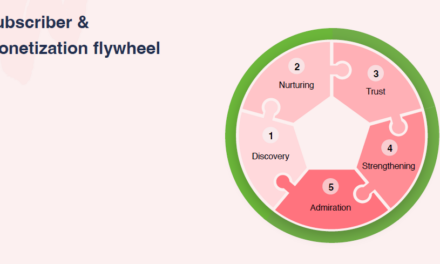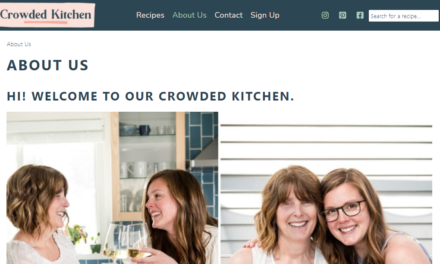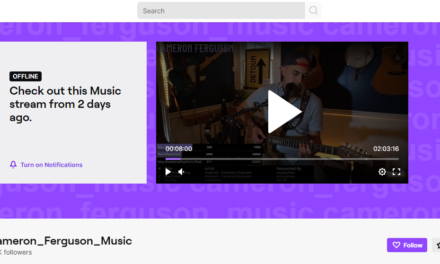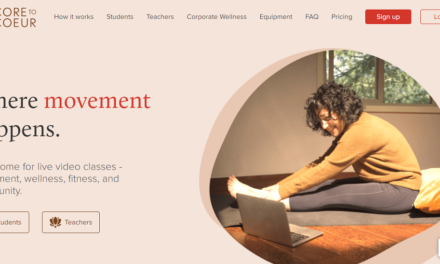One of the primary messages of The Tilt ideology is that we can build a business by being fan-first. If we can attract a meaningful and engaged group of fans to our content, we can then find ways to monetize and build a business platform. It works, and I’m living proof.
But one of the things I’ve been thinking a lot about is the difference between an “audience” and a “community.” I think this is especially relevant to understand the difference with the current hype around “creator communities.”
Which do you need? An audience or a community?
Audience vs. community
To establish a bit of context, I have been creating content consistently for more than a decade. Thousands of blog posts. Nine years of podcasts. Nine books.
My accumulated social media following is in the hundreds of thousands. But this is an audience, not a community.
@MarkWSchaefer says his hundreds of thousands of social media followers are an #audience, not a #community. #CreatorEconomy #ContentEntrepreneur Share on XGenerally speaking, an audience represents weak relational links, especially on social media. For example, if I posted on Twitter, “Hey everybody, buy my new book,” I would sell no books. There’s no real connection. People floating around Twitter may or may not heed my call.
But if I posted the same thing on my blog, I would sell LOTS of books because these blog subscribers opted to receive my content. They are more like a community because they have a direct emotional connection to me and what I do.
3 elements of a true community
Several times, I have tried to move my weak relational links into a community setting like a Facebook or LinkedIn group. Every time, they eventually petered out. I failed. I’ve spent a lot of time thinking about why and I’ve come up with an answer.
A community requires three conditions:
- Communion – The people in the community can’t just care about you. A real community cares about each other, too, like neighbors. A community can’t thrive when it’s only focused on one person. And besides, it’s exhausting for one person to carry the community, and I’m speaking from experience.
- Purpose – The community must have a reason to connect regularly. I am active in true communities dedicated to writing, speaking, and frequent travelers. I even love a local bird-watching group because of a shared love of nature in my area. In all of these places, the community is trying to make the world better in some small way.
- Relevance – This is obvious but essential. The group has to be relevant to the issues of today and the needs of the community. A community has to constantly reinvent to remain relevant.
Building a true community isn’t a marketing strategy. It’s a way of life up and down an organization. The content business serves the community, not the other way around, and that requires an enlightened mindset and approach.
A community requires these 3 elements: communion, purpose, and relevance, says @MarkWSchaefer #ContentBusiness #CreatorEconomy Share on XAudiences can be enough
Creating a community takes work, commitment, and patience, but it’s worth it for many creators. In fact, it might be essential. I’ve failed in my attempt to create communities because, in my efforts, one of those three elements (communion, purpose, and relevance) was missing. The good news is, I’m smarter now.
Now here is the grand irony – despite community failures, I’ve still been successful. You don’t always need a true community. Sometimes just an audience is enough.
I solve a problem for the world. I take a bold and forward-thinking approach to marketing. I have a spiky point of view at times because I tell the truth without fear.
That’s enough value for many people to want to subscribe and follow me in a very loyal way. They come to know my tone and view of the world and trust me. Often, these followers build enough of a connection with me that they hire me or buy my books and classes.
Through consistent, value-adding, and entertaining content, I’ve earned an audience instead of a community, and that’s OK.
Benefits of community vs. audience
The biggest benefit of a community versus an audience is timely access. My audience consists of tens of thousands of people who I probably don’t know. It can be hard to get them to take action directly on anything because they’re off floating around in various spaces on the internet.
Biggest benefit of a community over an audience? Timely access, says @MarkWSchaefer. #ContentEntrepreneur Share on XIn a community, I know the people directly and have immediate access to them because they’re in my walled garden. Having that direct community access can lead to support in many ways. You can bounce ideas around, build collaborative relationships, innovate, and work in ways that lead to many new business benefits.
Don’t just assume a community or even an audience is right for every content business. It’s a lot of work, and remember, your effort ultimately needs to lead to tangible business benefits.
About the author
Mark Schaeferis a marketing strategist, keynote speaker, university educator, and the author of nine books, includingMarketing Rebellion: The Most Human Company Wins.










